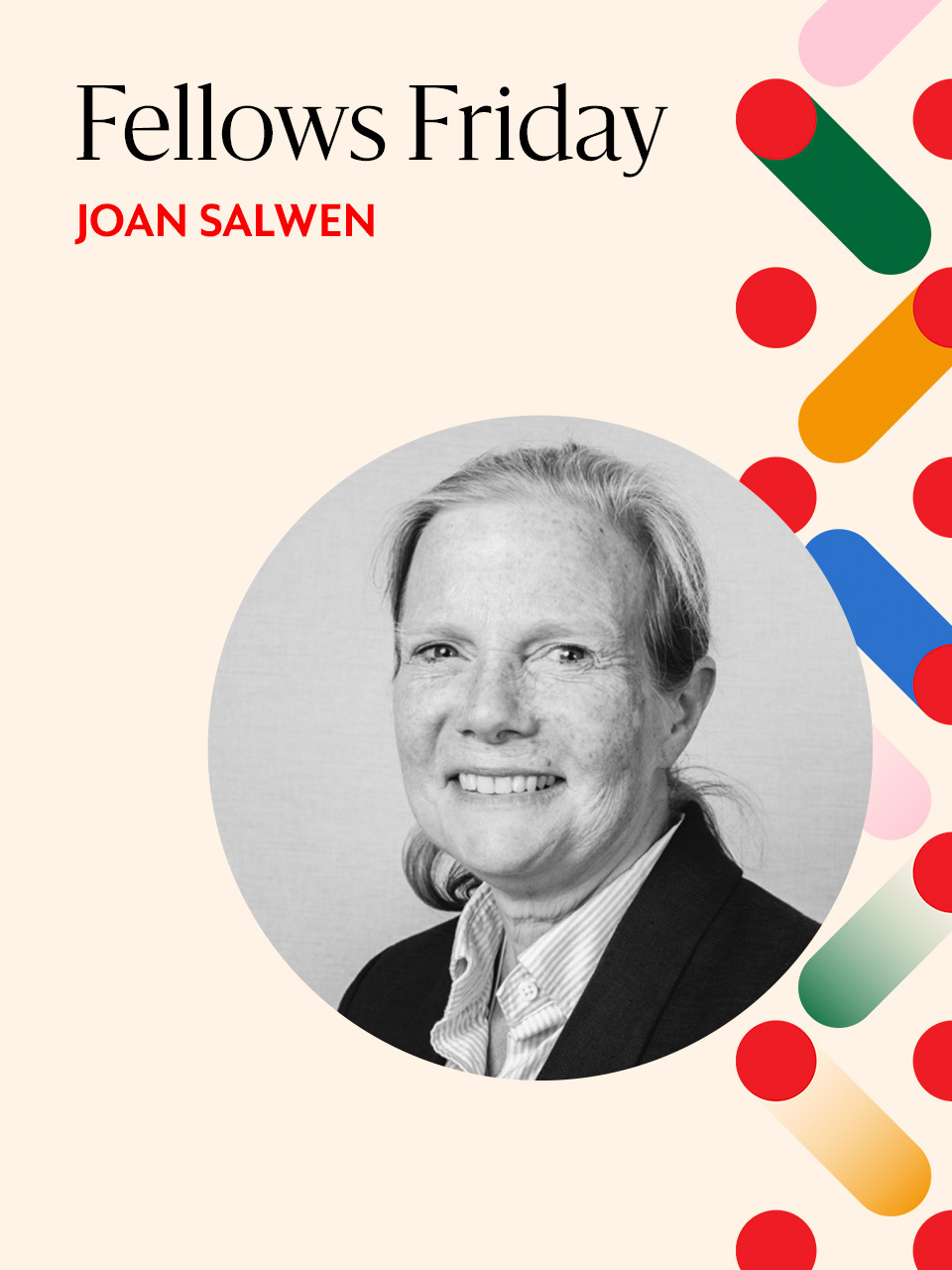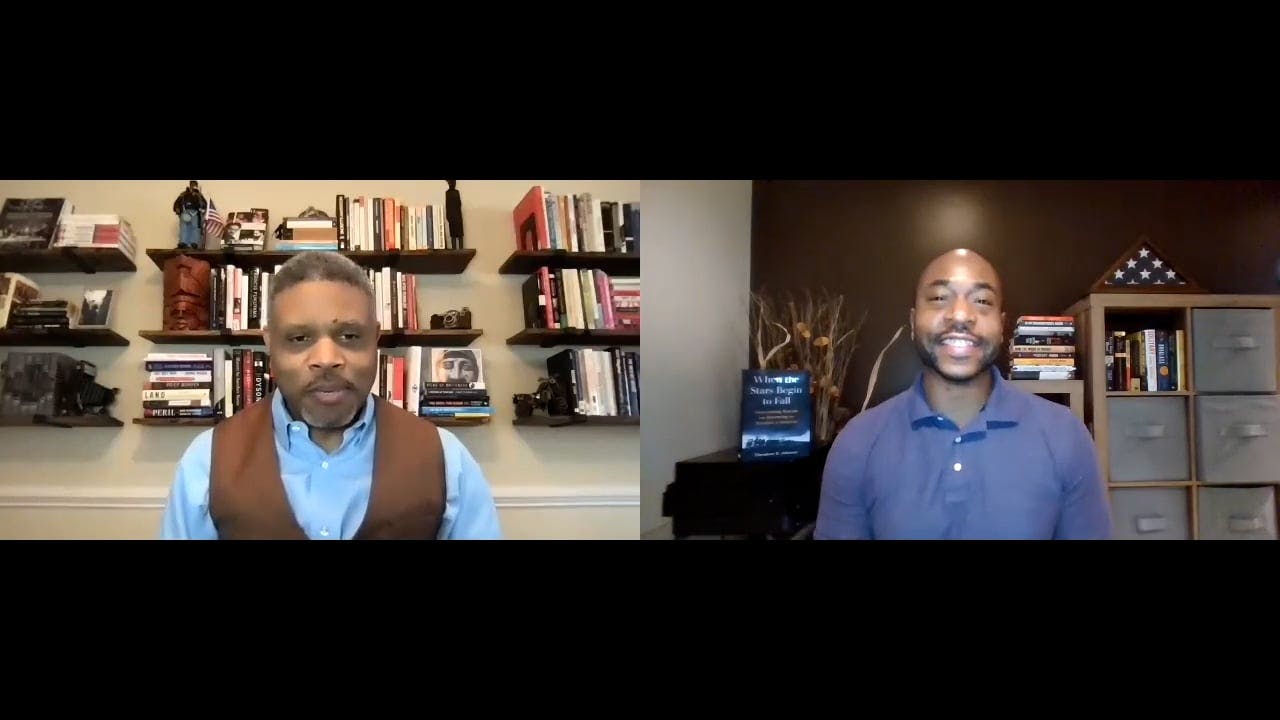
How to reduce global methane emissions? Feed seaweed to cows
56 min watch
Emerson Collective Fellow Theodore R. Johnson was raised in a middle-class, White neighborhood in Raleigh, North Carolina, the son of two first-generation college graduates, both of whom were the children of sharecroppers.
He went to college at Hampton University, an HBCU, before embarking on a two-decade Naval career that included service as a White House fellow, professorship at the U.S. Naval War College, and speechwriting for the chairman of the Joint Chiefs of Staff. But when killings of unarmed Black Americans overtook the nightly news in the 2010s, Ted grappled with an apparent tension between the institutions and identities that shaped him.
“Being raised in a Black household, going to a Black college, exposed me to Black solidarity. And being in the military for two decades exposed me to a kind of national solidarity,” he says. “Yet, even in the way that we've been treated historically as Black Americans, and even in the inequalities that continue today, there is compatibility between being Black in America and being proud to be American.”
His book, When the Stars Begin to Fall: Overcoming Racism and Renewing the Promise of America, is part multi-generational memoir, part roadmap for how America can achieve racial justice following centuries of White supremacy. In February, Ted joined Donnie Charleston, the Director of Policy and Advocacy for E Pluribus Unum, to discuss the personal and political histories that informed this work, and what he’s researching next as an Emerson Collective Democracy Fellow.

FELLOWS FRIDAY SERIES: Political scientist and author Ted Johnson discusses his book “When the Stars Begin to Fall” and the lessons Black history offers for building a united, multiracial democracy in America.
Our country was founded on this idea that we're all created equal—yet, we allowed slavery to persist because the nation's interest lay, first and foremost, in creating the union. We excused the racist treatment of Native Americans, of immigrants—even White immigrants from certain parts of Europe—and certainly of enslaved Black folks, in order to create the union. Ninety years later, the thing we overlooked at our founding became the reason we waged the Civil War.
Everything that came from our founding and from the reunification after the Civil War—Supreme Court decisions, who was elected president, the kind of Congress we had, the laws they passed—blossomed from a world where race was the central organizing factor of our country, of our politics, and of our society.
As much progress as we've made, if we don't come to terms with race, then we run the risk of spending lots of energy addressing problems that need our attention, but doing so in a way that won't solve the fundamental problem – and that is the role of racism, and structural racism.
The idea of superlative citizenship is that a person who has been oppressed or excluded from the fullness of democracy over-performs their duties as a citizen, even though they're not recognized as a full citizen by the nation-state.
When a person does this to demand inclusion, they expose the gap between who a nation says it is and the way it behaves, and can expose hypocrisy. And so, by shining a light on hypocrisy, they can cause the nation to change course as its failure to live up to its values begins to hurt its reputation and its soft power on the world stage. Black folks have always employed this as a resistance tactic, and it's served Back folks well over the course of the nation's history. It's not perfect, it is a long-term strategy that is often slow-going and incredibly painful, but we have shown over the course of nearly 250 years of the nation's existence that superlative citizenship can force the nation to be a better version of itself.
I think the first thing to recognize is that this fear is created by design. Those who hold the most power and don't want things to change point to individuals, arguing that racism is solely a thing about people's hearts, because that way the government has no responsibility to make it better.
On the other hand, if racism is a matter of public policy—if it’s structural—then the government is on the hook to fix it. And if racism is a crime of the state, when the state makes good on its errors, citizens are the means by which the remedy happens. If we make reparations tomorrow, my tax dollars go to those reparations, because I'm a citizen of the United States. When we decide to get rid of structural racism or mitigate its effects, we all contribute to that. It’s the only way it'll ever happen. That means for all of us, sacrifice and forbearance will be required.
As for how to help people move beyond their hesitancy to make those sacrifices, I think the way we realize progress on moral demands is by marrying those moral demands with the national interest. In this way, we compel the nation state to do the thing it thinks is good for itself, but it also begins to meet our moral claims on equality, on liberty, on equal protection, et cetera. It’s a very difficult, long-term strategy, but it's the proven way, by suffragists, abolitionists, the civil rights movement, you name it.
If we can allow people to retain their identities and come together for this one project of democracy, then the beauty of that thing is unlike anything that's ever been built in this world before.
Civic learning is a life-long endeavor that forces us to interact with people who are different from us. A nation of 330 million people will never get to know one another, but we have to find a way to establish civic friendships among democratic strangers.
In doing that, we have to tell the truth about our history, the ugly parts and the beautiful parts, the story of stagnation and backlash and the story of progress. And you can only do that if you incorporate the stories of people of color, stories of women, the stories of immigrants, the stories of native Americans, alongside the stories of the people who were in the Constitutional Convention of 1787 and have largely controlled our government since the nation's creation.
What makes this American project so special is that we allow people to retain their differences. We're not a nation of one race or ethnicity, and we shouldn't want to be. We're not a nation of just one language, and we shouldn't want to be. We're not a nation of one religion, of one set of customs and cultures, and we shouldn't want to be.
If we can allow people to retain their identities and come together for this one project of democracy, where we all have equal protection under the law, then the beauty of that thing is unlike anything that's ever been built in this world before. This, for me, is inspiring—this opportunity to try to do something of this magnitude—but it is incredibly daunting. But if we're able to do it, then we can be a model for other nations to pursue and see where the world goes from there.